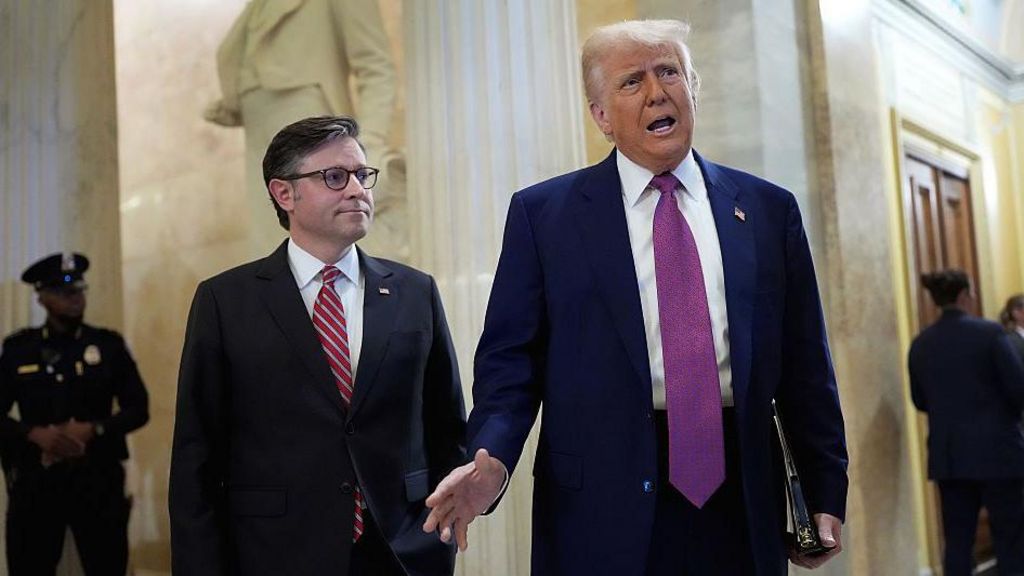
House Republicans have narrowly passed a comprehensive multi-trillion-dollar tax package, delivering a victory for President Donald Trump and House Speaker Mike Johnson following extensive negotiations with conservative holdouts.
The legislation passed by a razor-thin margin of 215-214, with two Republicans joining Democrats in opposition and one member voting present. The bill now advances to the Senate for consideration.
Trump and his Capitol Hill allies have hailed the passage as a significant achievement, with Johnson declaring it “gets Americans back to winning again.”
The package extends tax cuts from Trump’s 2017 legislation that were set to expire, while providing increased funding for defense spending and the president’s immigration enforcement initiatives. It also temporarily eliminates taxes on overtime work and tips, fulfilling key campaign promises from Trump’s 2024 presidential run.
“What we’re going to do here this morning is truly historic, and it will make all the difference in the daily lives of hard working Americans,” Johnson stated before the vote.
However, the bill includes substantial spending reductions to programs serving lower-income Americans, including cuts to Medicaid healthcare coverage and the Supplemental Nutrition Assistance Program (SNAP), which serves over 42 million Americans. These provisions generated significant Republican internal opposition until Trump personally visited Capitol Hill on Tuesday, privately urging lawmakers to support the measure or face potential consequences.
Democrats strongly opposed the legislation, warning of severe impacts on vulnerable populations. Minority Leader Hakeem Jeffries warned that “children will get hurt, women will get hurt, older Americans who rely on Medicaid for nursing home care and for home care will get hurt.” He added that “hospitals in your districts will close, nursing homes will shut down, and people will die.”
The White House issued a statement calling failure to pass the bill the “ultimate betrayal.”
The legislation carries an estimated $5.2 trillion price tag, projected to increase US debt and add approximately $600 billion to the budget deficit in the upcoming fiscal year. These substantial figures contributed to Moody’s recent downgrade of the US credit rating, citing concerns about mounting debt and interest payments.
The 1,000-page document was released only hours before the vote, leaving potential provisions yet to be fully analyzed by lawmakers and the public.
Senate approval remains necessary, with potential modifications that could require another House vote. Trump has urged the Senate to expedite passage through his Truth Social platform.
A key challenge awaits in the Senate: Congressional Budget Office analysis indicates the debt increase would trigger a 2011 law provision mandating approximately $500 billion in Medicare cuts. Trump had pledged to protect the popular elderly health insurance program, and Republicans would likely face political consequences without addressing this automatic reduction mechanism.
Democrats plan to leverage the vote in upcoming midterm elections, emphasizing spending cuts to low-income programs, research funding, and environmental initiatives, alongside tax benefits for wealthy Americans.
Despite Republican celebrations, the narrow House majority remains vulnerable to shifts in public opinion, with midterm elections potentially transferring chamber control to Democrats and halting Trump’s legislative priorities.












Be the first to leave a comment